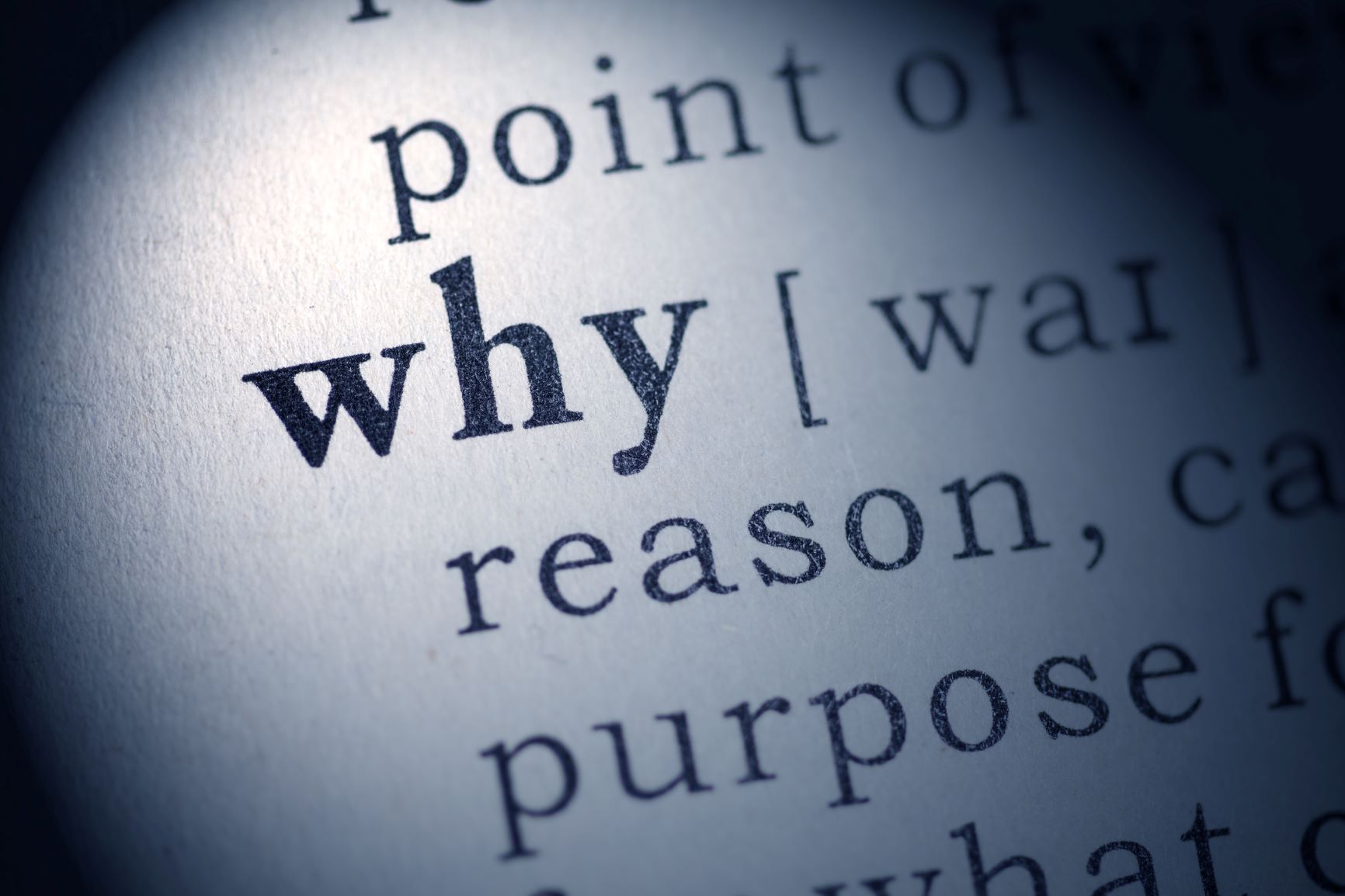What is Your Why?

“Successful people all think, act and operate the same way. They all know what they do, some know how they do it, but very few know why they do what they do,” says author and motivational speaker Simon Sinek in his 2009 TED Talk, “How Great Leaders Inspire Action.”
How many times have you heard an adult in their 30’s, 40’s and 50’s ask facetiously, “What am I going to do when I grow up?”
When people don’t know their “why”, they don’t know what is important to them. And to their misfortune, end up being motivated in life by what is important to other people instead of what is important to themselves. And when you are motivated by the wrong thing—money or riches, for example—you will not be able to sustain anything difficult or challenging for the long haul. You will quit the minute it gets too difficult!
That is because knowing your “why” not only compels you to take on challenges and learn new things, knowing your “why” inspires you to keep on going toward your dreams when things get tough.
As Sinek points out in his TED Talk, “Martin Luther King gave the ‘I have a dream’ speech, not the ‘I have a Plan’ speech.
Knowing your “why” is like a magic GPS pointing to your True North. Not only is it the absolute key to achieving your dreams, knowing your “why” gives you:
- · deeper purpose and meaning
- · more direction in your life
- · a reason for your existence
- · and a “knowing” of what to do with the time that you have on this planet.
Because when you can start with “the end result in mind, everything else will naturally fall into place,” Sinek explains.
- · You will be motivated by something you truly believe in
- · You will work harder and better
- · You will push through obstacles such as fear, self-doubt and procrastination
- · You will make better choices
- · You will live longer.
Yes, you will live longer! Studies show that having purpose and meaning in one’s life is correlated to longer lifespans. Now that’s some pretty powerful stuff.
As OTA’s very own in-house psychologist Dr. Woody brilliantly states, “…when your goals are tethered to your passion, you become driven not dragged to the results you want. You are then poised to do only what is in the interest of your highest and best goals, and your highest and best self.”
If you claim to not have a “Why”, don’t worry, it’s there somewhere, probably buried under the many should’s and ought to’s you have adopted over the years. To help you uncover your true purpose, here are a few questions that you can ask yourself:
- · What makes you feel alive?
- · What are your strengths?
- · Where do you add the greatest value?
- · How can you make a difference in this world? (Think greater than yourself)
- · Are you willing to do it anyway, no matter what people think or if it embarrasses you?
- · What struggles are you willing to tolerate, or what sacrifices are you willing to make?
- · What gets you excited about the future?
- · How will you measure your life?
- · How would you like to be remembered? What would you like written on your epitaph or spoken at your eulogy?
By pondering these questions, you are forced to take a closer look at your life and make sure you are living the life you want.
A special note: For some this may be a scary exercise, especially when thinking about your epitaph, for instance. This brings up the idea of death which can trigger all kinds of uncomfortable feelings. But our mortality plays a huge role in our lives. Death is a fact of life, our clocks are ticking and none of us are going to get out of this alive. This awareness of our own mortality can be frightening, but it can also be motivating. When we know our time is limited, we are forced to use that time in the best way possible. As Paul Kalanithi, a neurosurgeon diagnosed with terminal lung cancer when he was only thirty-five writes in his memoir, When Breath Becomes Air, “Tell me three months, I’d spend time with my family. Tell me one year, I’d write a book. Give me ten years, I’d get back to treating diseases.” Kalanithi lived his life based on his “why”!
What is your “Why”?